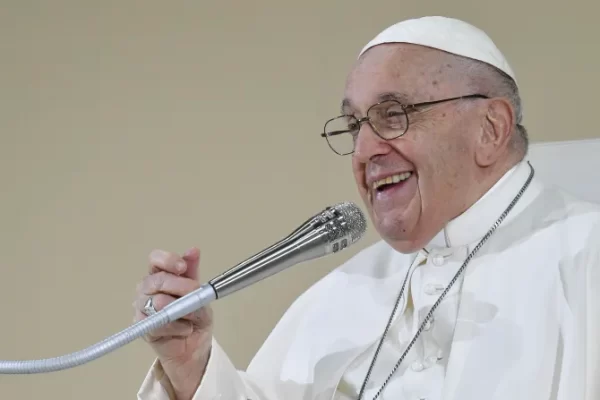Pope Francis received in audience the management team of the Spanish Paul VI Foundation, reminding them that the doctrine of the holy Pope remains “current.”
The Pablo VI Foundation is a cultural and higher education institution that manages works of various kinds in the academic, residential, and sociocultural fields.
From St. Peter’s Square, the Bishop of Getafe (Madrid, Spain), Mons. Ginés Ramón García Beltrán, president of the Foundation, told the media the details of his audience with the Holy Father, which took place at the Palace Apostolic of the Vatican.
He described the meeting as “endearing” and highlighted that Pope Francis “always makes things easy.”
“There is something that always stands out in the Pope, and it is the ability to listen. He has listened to us one by one. Each one of us explained to him what he does at the Foundation and in the end he told us that he didn’t know it was so big and that we did so many things.”
He said that the Pontiff “has been surprised” by the contribution that this association makes to the Church in Spain, “which invites and creates bridges of dialogue in society.”
For this reason, Pope Francis has invited them to “get their hands dirty” and get “into areas that can often be difficult, but that must be undertaken.”
Specifically, he highlighted that Pope Francis has been especially interested in initiatives in favor of young people.
In addition, the management team of the Paul VI Foundation has delivered several letters from young people who have been at WYD and who wanted to tell the Pope their impressions.
The Holy Father has also highlighted the figure of Saint Paul VI and has invited you to read his apostolic exhortation Evangelii nuntiandi.
“He has insisted to us that Paul VI still has much to contribute to the Church. Today we could sign his doctrine as current,” said Mons. Ginés.
Finally, he highlighted that the Pontiff has asked them to continue internalizing the words of the holy Pope and to have “courage.”
This Foundation was established as an institution of pontifical right by Cardinal Ángel Herrera Oria in 1968.
It is in charge, among other things, of managing a large residential project for university students, postgraduates and competitive examinations.
Some of its lines of analysis, reflection and training are dialogue with politics, culture and society; science, technology and bioethics; social justice, human promotion, development and ecology.



